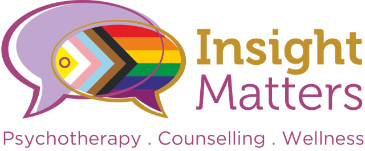The Importance of Resourcing Ourselves
At Insight Matters we have 75 talented psychotherapists, psychologists, counsellors and wellness practitioners. We are proud our therapists come from diverse backgrounds, ethnicities, the neurodiverse and LGBTQ community and are passionate about supporting our clients on a wide range of issues.
Along with supporting our clients through counselling and psychotherapy we also want to help them become more informed and assist them to take charge of their own mental journey through psychoeducational articles written by our therapists.
Eleanor Dunn respects the uniqueness of each person and believes that no aspect of ourselves can be ignored; either mind, body, emotions or spirit. Her desire is to support people to live their lives to the full.
_________________________________________________________________________________________
It seems that nearly every article we read these days about mental health, especially now during these COVID-19 times, reminds us of the importance of looking after ourselves by eating well, sleeping well, doing things we enjoy and getting the support we need. It is becoming the mantra in the mental health world and almost clichéd. But why is it so important?
When I was training to be a psychotherapist, I was also working in homeless services. Specifically, I was working in an addiction treatment service and grappling to understand how best I could support these people who had been through so much but who also clearly needed something to change in their lives to help them to move out of the cycle of suffering and chaos in which they were caught.
It seemed obvious to me that it was not failure or some kind of personal shortcoming that led the people I met through my work to the place they found themselves; who would choose this for themselves after all? No, it was the trauma and suffering they had endured over many, many years that was weighing them down and that they could not find a way out of. This was confirmed for me as I listened to story after story of a childhood of abuse, hardship and extraordinary pain. They were almost drowning in their trauma.
Yet trauma, by its definition, is overwhelming, so to open up to that trauma seemed too much to ask, dangerous almost. I also knew what therapy training had thought me; that it is so often that by facing exactly what has hurt and damaged us that we heal and liberate ourselves from it. It seemed to me then, that we were all stuck. The way through was too overwhelming, but there was no healing without it.
At the time I remember reading a seminal book on trauma called Trauma and Recovery by Judith Herman. Reading the book gave me the insight I needed to clarify how I could best support people through my work. Without the inner resources to support themselves, look after themselves, be good to themselves, their bodies and psyches would never get to a place where they could deal with the trauma they had experienced. My job was to drive that message home and support them to develop the tools and habits of self-care.
Not all of us experience homelessness of course, but many of us, and perhaps most who seek out therapy, have experienced trauma to a greater or lesser extent in our lives. To heal the trauma and the wounds, to do what therapists often call ‘integrate’ the trauma, we need to have the internal resources to do so. We need to know what to do to soothe ourselves when our boss gives us a bad performance review at work, or our anxiety rampages in the fear that she will. We need to know what to do when our body is exhausted because of all the tension and tightness it is holding from days of overworking. We need to be able to give the body a chance to loosen and soften; maybe through yoga or playing tennis or going for a walk. We need to know what to do when our head is spinning a hundred miles an hour like there is washing machine inside our skulls; we need to be able to slow it down, a least a little, perhaps by a healthy distraction into the present moment of what is right here, right now. We need to learn the skills of self-compassion to counter the critic in our heads. We need to learn to regulate ourselves when our emotions are swinging from panic through to numbness.
This takes work of course. Sometimes I say to clients ‘You wouldn’t expect to get fit after one visit to the gym?’ No, we have to take our nervous systems, the regulator of much of our emotional storms, to the gym; exposing our nervous systems to what it feels like to be at ease and grounded and feel well-being and safety, over and over and over again.
Then, and only then, can we approach the work of integration, when we can begin to talk of our wounds, search back into the history of our pain, and know that, even if it hurts deeply, we wouldn’t be overwhelmed by it, that we will still be moored to a sense of safety and stability in ourselves, because we have learned how to resource ourselves, and we have learned how to take care of ourselves in the midst of our pain and struggles, without being overwhelmed.
